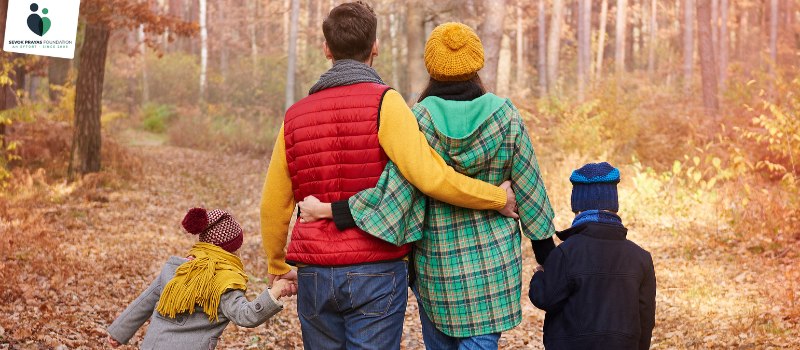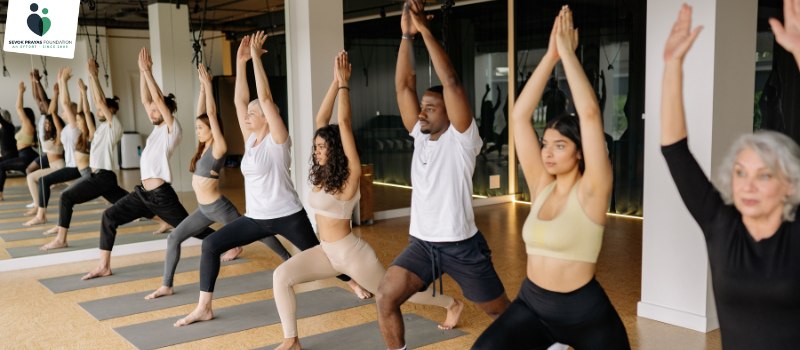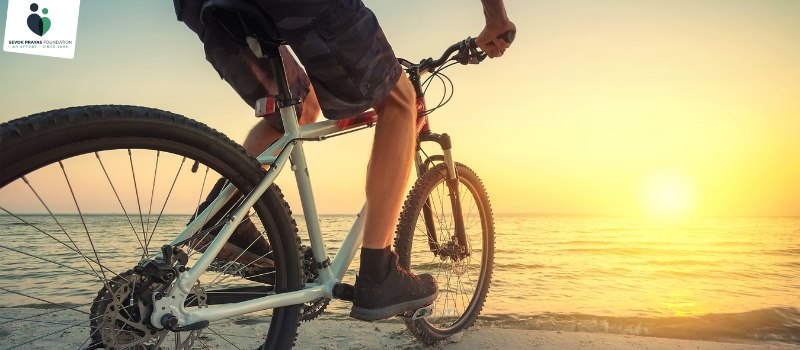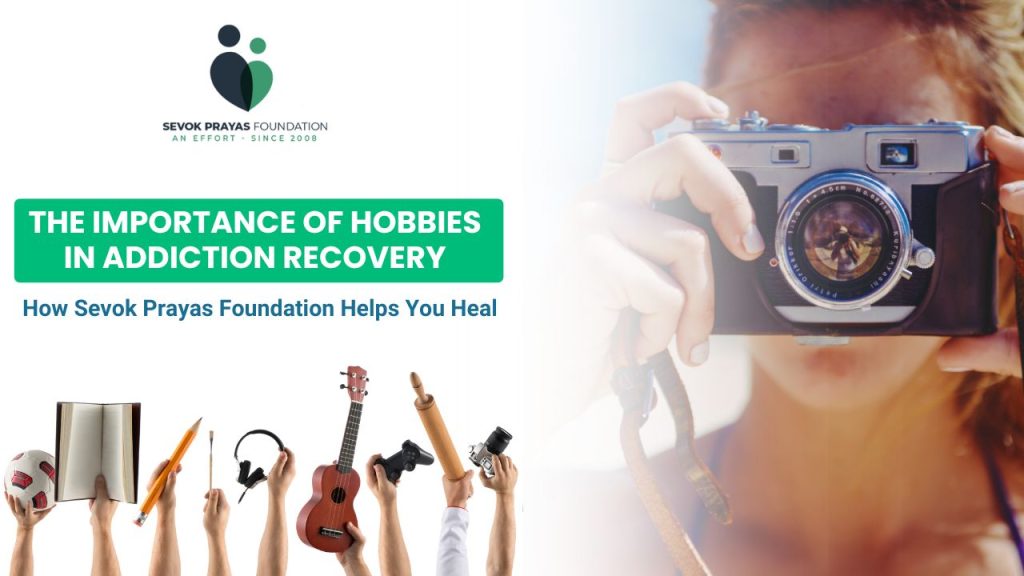Recovering from addiction is not just about stopping substance use; it’s about building a new, meaningful life. Hobbies—activities you enjoy doing—can play a big role in this journey. At Sevok Prayas Foundation, we believe that hobbies can help you stay away from cravings, build self-confidence, and improve your overall health. This blog will explain:
Why hobbies are important in recovery and how they help in healing
1. Introduction
The road to recovery from addiction is not just about abstaining from substances but also about creating a new, meaningful life that supports long-term sobriety. Hobbies—activities pursued for pleasure and personal satisfaction—play a crucial role in this transformation. They offer more than just a pastime; they serve as vital components of a balanced recovery plan. Engaging in hobbies can help individuals manage cravings, build self-worth, and improve overall mental health, all of which are essential for sustainable recovery.
2. Hobbies as a Distraction from Cravings and Triggers
One of the most significant benefits of hobbies is their ability to serve as a distraction from cravings and triggers. Engaging in a hobby requires focus and attention, which can redirect the mind away from thoughts of substance use.
- Mindfulness and Engagement: Activities like painting, gardening, or playing an instrument demand concentration and mindfulness. This engagement helps individuals stay present and occupied, reducing the time available for cravings to take hold.
- Structured Distraction: Hobbies provide a structured distraction that can replace the time previously spent on substance use. For example, someone who used to spend hours using substances might find that learning to cook or participating in a sports league fills that time with positive, rewarding experiences.

3. Building a Sense of Purpose and Achievement
Hobbies play a pivotal role in fostering a sense of purpose and achievement, both of which are critical for recovery.
- Self-Esteem and Accomplishment: Engaging in hobbies allows individuals to set and achieve personal goals, which can significantly boost self-esteem. Mastering a new skill or completing a challenging project provides a sense of accomplishment and reinforces the belief in one’s capabilities.
- Psychological Impact: The psychological impact of setting and achieving goals through hobbies cannot be overstated. It shifts the focus from past failures to current successes, helping to build a positive self-image and a sense of purpose.
- Stories of Transformation: Many individuals in recovery have found new purpose through their hobbies. For instance, a person who took up woodworking as a hobby after years of addiction found not only a new skill but also a renewed sense of pride and self-worth. These personal stories of transformation illustrate the profound impact hobbies can have on an individual’s recovery journey.
4. Hobbies Improve Mental Health and Well-being
Mental health is a cornerstone of addiction recovery, and hobbies can significantly enhance overall well-being.
- Stress Relief: Many hobbies, such as yoga, meditation, or gardening, are known for their stress-relieving properties. Reducing stress can lower the likelihood of relapse and improve emotional stability.
- Emotional Expression: Creative hobbies like writing, art, or music provide healthy outlets for expressing emotions and processing experiences. This emotional expression is crucial for mental health and helps individuals deal with the complex feelings associated with recovery.
- Social Connection: Hobbies can also foster social connections, whether through clubs, classes, or online communities. Building supportive relationships through shared interests can reduce feelings of isolation and enhance social support networks.

5. Hobbies Developing Healthy Routines and Structure
Recovery is easier when you have a routine. Hobbies give you something positive to do each day, helping you stay organized and stable. This structure helps you manage your time better and stay focused on your recovery goals.
6. Exploring New Interests and Skills
The journey of recovery is also an opportunity for personal growth and self-discovery. Hobbies offer a platform for exploring new interests and developing new skills.
- Personal Growth: Trying out new hobbies exposes individuals to different experiences and perspectives. This exploration can lead to personal growth and a deeper understanding of oneself.
- Skill Development: Learning a new skill, whether it’s a craft, a sport, or a new language, provides a sense of achievement and can open doors to new opportunities and interests.
7. Practical Tips for Incorporating Hobbies into Recovery
- Start Small: Pick a hobby that interests you and set small, achievable goals.
- Make Time: Schedule a regular time for your hobby, so it becomes part of your daily routine.
- Find Support: Join classes, clubs, or online groups to connect with others who share your interests.
- Be Patient: Remember that learning something new takes time. Focus on enjoying the process, not just the results.

Hobbies are not just fun; they are powerful tools for recovering from addiction. They help you stay away from cravings, build self-confidence, improve mental health, and create a structured routine. At Sevok Prayas Foundation, we encourage everyone in recovery to find and embrace hobbies as part of their healing process. Hobbies can help you rediscover joy, purpose, and fulfillment, which are key to a successful and lasting recovery.


